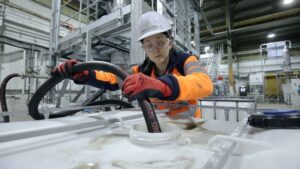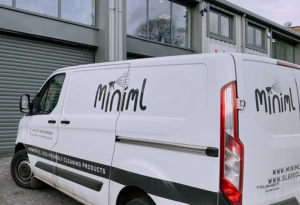Headlines gush with excitement over the latest digital gimmicks. Newspapers, podcasts, and social feeds rhapsodise about ‘the next big thing’. Usually, that is something you can’t hold in your hand, can’t test for yourself or simply don’t need. Sometimes, the ‘next big thing’ is ridiculous; other times, it is detrimental. Detrimental to your attention span. To your work. To your sleep. To your physical and mental health. To whatever satisfies you. To your social time. To your time generally, the one commodity no human can ever retrieve. Sometimes, it’s detrimental to all of these things and more.
We see breathless coverage of NFTs, fanfare around new crypto coins and dramatic presentations about biohacking, tech ecosystems and quantum computing. We hear the same old buzzwords like “digital disruptors”. As new AI companies abound, the near-constant drone about that technology rises and falls. The stock markets rise and fall in tandem. Most investors can’t distinguish a digitally-interactive LLM from the CoNE. Most people can’t either. That’s no fault.
We usually learn about a web-based tool in the press or from someone else. Is that tool worth it? Will we use it? Does it add value to our lives or just take money from our wallets? Ordinarily, the latter. Can we do without it? Yes. We excuse ourselves for using corpora of supposedly novel technological tools. But fear of missing out doesn’t just manifest as anxiety. It’s expressed verbally across the nation through untold iterations of, “Someone told me this product was excellent, so now I’m going to use it.” That is how too many businesses can get away with overpriced subscription models and shoddy programming.
Meanwhile, smaller companies make changes that will last generations.
SMEs Need Greater Publicity
SMEs keep running, their work neglected by those outlets with the highest circulations or viewers and their ingenuity underappreciated.
While they’re developing effective products and services, they lack the obscene amounts of money that publicists and marketers stuff into the pockets of those firms who dominate the ‘Information Age’, itself a monumental misnomer. A more accurate term is the ‘Misdirection Age’. Today, the amount of information one can access is immense, but as that amount increases, the quality degrades. Trying to put quality online gets more difficult. It’s more difficult for individuals, and it’s more difficult for SMEs.
Despite all this, as the UK Department for Business & Trade (DBT) notes, SMEs are the state’s economic foundation. SMEs account for 99.9% of the business population. Meaning that for every person working at a private sector corporation, a thousand work at SMEs. The UK, let alone the world, hears far too little about their progress, but even the smallest SMEs produce value through clever thinking and original action. They do vital work, improving lives, and in fact, the world.
Tokamak Energy
Nuclear fusion is an endeavour so ambitious that many industry behemoths have stepped back. Tokamak Energy continue. The Oxford-based SME devise advanced superconducting magnets and reactors that could one day provide limitless clean energy. It’s hard to overhype something that might reshape how the way the world is powered.

Inside a Tokamak Energy spherical reactor, where powerful magnetic fields contain and control superheated plasma in pursuit of fusion energy.
Tokamak’s investments are primarily governmental, with discerning management firms and individual investors providing recent capital injections. Even the US government has helped in that respect, and has linked Tokamak Energy with universities, labs and government research institutions in that nation. In 2023, Tokamak Energy partnered with one of Japan’s largest trading corporations, Sumitomo Corporation. Sumitomo is working with Tokamak to develop and implement fusion energy production in Japan – and globally. These events should have helped Tokamak Energy attract momentous interest via the UK’s top media conduits. But coverage has been limited. The pattern stayed the same, and not just for Tokamak Energy.
Nova Pangaea Technologies
Nova Pangaea Technologies is in Redcar, North Yorkshire. It transforms wood and biomass waste into high-value chemicals and fuels. It’s built biopolymers with an enormous number of uses, from tissue engineering, regenerative medicine, wound healing and safe precision delivery of medicines into the human body to food packaging, water purification and textiles.

Inside a laboratory at Nova Pangaea, a team member works to create sustainable biopolymers from forestry waste.
As influencers chase clicks for transient excitement, Nova Pangaea turns forestry waste into marketable resources, keeping the environment cleaner and reducing reliance on fossil fuels. It’s received support from the British Business Bank and has, through smaller investors and management firms, raised close to £5.4 million. Much of this has come from Mercia Asset Management, a UK firm that helps SMEs that foster innovative technologies. Mercia has brought SMEs to public markets. Nova Pangaea’s team is small but talented and growing. Innovation, as its website states, means inspiring its team to be curious, creative and to challenge the status quo.
The Friendly Chemical Company (TFCC)
The Friendly Chemical Company, creators of the Miniml product line, are another North Yorkshire firm. Based in Cononley, TFCC creates refillable household cleaning and personal-care products for people who want to cut down on single-use plastic. Its formulas, ranging from laundry liquids to washing-up solutions, are designed to be biodegradable. Since it was founded by two people in 2017, it’s seen steady growth, backed by modest investments from socially conscious venture funds and local government grants.

Miniml, a TFCC brand, delivers, collects and reuses plastic containers.
TFCC has partnered with local retailers to set up refill stations in various UK locations. Its brands have spread and grown through word of mouth. For instance: Miniml reduces plastic use by providing starter kits to users, who, once they’ve refilled and emptied the bottles, return the bottles to refilling stations or to Miniml, who in turn reuse the bottles to create new ones. The company focuses on meticulous product testing and long-term customer engagement. Each such iteration is measured by reductions in plastic waste and improvements in product performance. Like everything TFCC does, it is imaginative and purposeful work and a case of success breeding interest, even without seven-figure marketing budgets.
From McJournalism to Marketing Substantive Businesses: Hope Springs Eternal
If these three SMEs – just three chosen from millions – had access to more marketing dollars, they’d attract more money. News cycles are hungry for glitz, shock and anything capricious. It’s understandable. The pivot away from in-depth reporting shouldn’t be a shock. Big news conduits need to attract and keep consumers, even if that means they need to copy some of the old yellow journalism methods. But the capricious doesn’t usually change the world. SMEs can and do. The achievements of UK SMEs merit more airtime and more column space. That would breed more investment. If greater consideration (and then capital) went to companies actually solving problems, products would reach market sooner. Benefits would flow through supply chains, from suppliers to clientele, all the way to local society and the entire UK.
No supporter of UK SMEs should forget words of the Enlightenment poet Alexander Pope: hope springs eternal.
Successful smaller innovators, like those covered in the series’ first article here, prove that genuine progress happens. If the biggest corporate investors take a chance on any of the SMEs in this series, everyone will reap the rewards.
Links (these open in new tabs)
Invoice Insure Homepage
Invoice Insure Articles
Assured Trade Homepage
Assured Trade LinkedIn